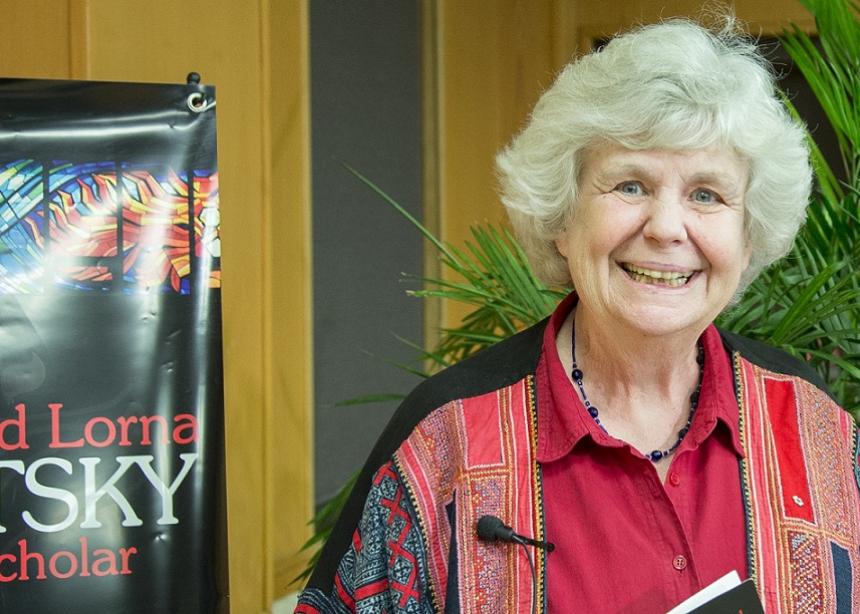Mary Jo Leddy asked those gathered on a cold Canadian evening in Waterloo what kind of Canada they want to be part of: one that is mean and nasty, with borders open for business but not for refugees? Or a Canada that is just, good, caring and decent with borders open to invite people to join in the responsibility for this place?
Leddy, the director of Romero House in Toronto, a transition house for refugees, was the 2017 Rodney and Lorna Sawatzky visiting scholar at Conrad Grebel University College, who spoke on March 3, 2017.
When Romero House was founded, the staff and board did not spend time connecting with their neighbours. This came to a head when they wanted to build, and neighbours protested a simple electrical permit, she said. But when one neighbour reached out to Leddy and other neighbours, relationships began to grow. After 25 years, those initial relationships now result in a large street party yearly; donations from neighbours of clothes, furniture, and job offers; homes being opened for emergency shelters of newly arrived refugees; and more.
On the 25th anniversary, she said neighbours invited an indigenous dance and drumming troupe from northern Ontario to perform on the street as a gift to Romero House. She wondered what it was that brought the staff, refugees and neighbours together, and she decided that it was a common responsibility for the street itself, not just the private houses along it.
If any one person or group tried to control the street, it resulted in conflict. When any one person or group refused to take responsibility, the same happened. The indigenous troupe brought home to her that this idea could be extended to the country as a whole. Indigenous people do not claim to own the land but rather invite settlers to shared responsibility for it.
So the question stood. What kind of Canada could the audience imagine during the 150th anniversary of confederation: one in which everyone shares responsibility for the land or one in which some try to control the resources and the borders? One in which new people are invited into shared responsibility or one in which the oldest residents and potential new ones are excluded?
Refugees, she said, come to Canada because they have heard about the generosity and inclusion they hope for. Can Canadians have a similar hope about the land, themselves and potential newcomers?



Add new comment
Canadian Mennonite invites comments and encourages constructive discussion about our content. Actual full names (first and last) are required. Comments are moderated and may be edited. They will not appear online until approved and will be posted during business hours. Some comments may be reproduced in print.